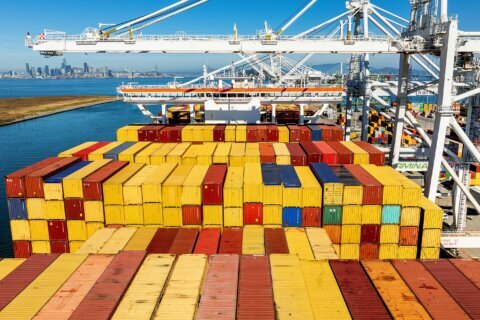As the nation looks ahead to 2024, there is cautious optimism that the economy may return to a sense of normalcy after years of disruption caused by the COVID-19 pandemic.
The job market remains solid — and it appears the odds of a recession have decreased and that inflation is heading down as well.
“It looks like the Federal Reserve is probably going to be cutting interest rates too, so rates won’t be quite as high as they have been,” said Neil Irwin, chief economic correspondent for Axios.
According to Irwin, there is a “strong possibility” that 2024 will not bring the kind of “wild gyrations that we’ve had every year so far in the 2020s.”
When the pandemic first hit in 2020, there was mass unemployment and trillions of dollars in fiscal stimulus, sending shock waves through the economy.
In 2021, “the reopening was very, very bumpy” as inflation skyrocketed, Irwin said.
Then, in 2022, the Federal Reserve started raising interest rates significantly in an effort to curb inflation.
Russia’s invasion of Ukraine in 2022 disrupted the global commodity markets.
In 2023, “We’ve had ripple effects from those higher interest rates,” Irwin said.
“The housing market and mortgage rates have been a real mess, plus we had the banking crisis back in the spring that included some bank failures.”
Essentially, all of these factors have been sending the economy up and down like a roller coaster for a few years now.
“What I’m predicting is that it looks more likely than not that 2024 will be a year where things are a little more steady,” Irwin said.
While many experts had predicted the country was heading toward a recession, that did not materialize.
“What people expected was that to get inflation down, there would have to be high unemployment, and that there’d have to be a period of the economy really being in the tank to get inflation down,” Irwin said.
What’s happening instead, however, is that inflation is coming down even with a solid labor market and economy.
“We are seeing steady growth and a low unemployment rate,” Irwin said. “We’re seeing disinflation happen without high unemployment.”








